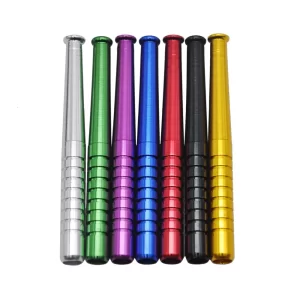Welcome to the latest edition of “Last week in Weed,” catching you up on the latest breaking news and industry developments in the world of cannabis.
Here’s what you may have missed over the last week:
U.S. Federal Push: MORE Act Reintroduced
Rep. Jerry Nadler (D-NY) reintroduced the Marijuana Opportunity, Reinvestment, and Expungement (MORE) Act in the U.S. House. The bill proposes full federal cannabis legalization by removing it from the Controlled Substances Act, enabling expungements, and funding support for communities impacted by prohibition. If passed the MORE Act would mark a crucial flashpoint for equity-driven reform and political traction in federal legislation.
Privacy Breach: Nearly One Million Medical Cannabis Records Exposed
Ohio Medical Alliance LLC (“Ohio Marijuana Card”), an Ohio-based medical cannabis recommender, left a 323 GB database, containing nearly 1 million patient records, unsecured and publicly accessible. The exposed data included:
- Social Security numbers, medical records, mental health evaluations, physician reports.
- Driver’s licenses, IDs, and even “offender release cards.”
- A “staff comments” CSV with internal communications and 210,000+ email addresses.
The breach was discovered mid-July by researcher Jeremiah Fowler; the database was secured the following day. The company has not provided comprehensive comment beyond an initial acknowledgement that an investigation is underway but this is the kind of privacy breach that can destroy an otherwise solid foundation—hopefully this serves as a neon warning sign flashing over the entire cannabis healthcare system about patient safety and the shaky wires holding its cybersecurity together.
Delaware’s Cannabis Market Off to a Strong Start
Delaware’s recreational cannabis market, which launched on August 1, saw strong performance in its first full month. Total retail sales reached $7.35 million, with flower accounting for $4.07 million (55%). Cultivation included over 109,000 plants across 447 strains, with 171 strains available at retail. The Office of the Marijuana Commissioner issued 79 conditional licenses and 3 active licenses, and additional approvals are underway—including Social Equity Financial Assistance grants. Delaware’s successful debut helps strengthen the case for substantial consumer demand and also demonstrates the benefits of an inclusive licensing roll-out—with social equity baked into expansion plans.
Germany’s Remexian Pharma Faces Legal Scrutiny
Remexian Pharma, a German medical cannabis distributor, is under investigation following allegations that it marketed different cannabis cultivars under a single authorization number and distributed irradiated products without proper permissions. In response, Cansativa Group has stopped carrying Remexian’s product lines.
Meanwhile, Canada’s High Tide Inc. closed its 51% acquisition of Remexian. These regulatory missteps cast a shadow over Remexian’s credibility just as High Tide steps in—with the new brass at the wheel, you can bet the industry watchdogs will be keeping a close eye out for any possible future blunders.
Regulatory Shifts Across Major U.S. States
- Missouri Supreme Court invalidated “cannabis tax stacking” rules that layered local taxes atop state levies.
- The Second Circuit Court of Appeals ruled that New York’s licensing preference for in-state cannabis applicants violates anti-protectionism legal principles.
- Texas is progressing with its compassionate use program licensing.
- Kentucky is preparing to open its very first medical dispensary this fall.
- Anchorage, Alaska postponed allowing on-site cannabis consumption at retail locations, stalling expansion of consumption options.
Michigan Recalls Vape Cartridges Containing Unsafe MCT Oil
The Michigan Cannabis Regulatory Agency issued a recall bulletin for 5,765 Kushy Punch vape cartridges (Pineapple Jealousy) from Exclusive Brands, sold between January 23 and May 12, 2025, due to inclusion of MCT oil. Regulators previously recalled 26,000 Motor City Cannacarts and RIPZ vape pens also found to contain MCT oil. The recall underscores continuing product safety and quality assurance challenges in the vape market—regulators remain vigilant, but consumers may grow wary of consistency and safety standards.
Cannabis Stocks: Biggest Winners & Losers
The cannabis sector experienced notable volatility during this period, with several companies showing significant price movements.
Tilray Brands Inc. (TLRY)
Tilray’s stock demonstrated considerable fluctuations. On August 28, it rose by 7.30% to close at $1.47, outperforming the broader market. However, by August 29, the stock declined by 6.12% to close at $1.38, underperforming the market. As of September 2, TLRY is trading at $1.265, reflecting a decrease from its August 28 peak.
Village Farms International Inc. (VFF)
Village Farms experienced a surge in late August. On August 29, the stock closed at $3.27, up from $2.92 on August 26. However, by September 2, it had dipped to $2.98, indicating a pullback after the recent gains.
GrowGeneration Corp. (GRWG)
GrowGeneration’s stock saw a decline during this period. On August 29, it closed at $1.70, down from $1.82 on August 26. As of September 2, GRWG is trading at $1.64, showing a continued downward trend.
Verano Holdings Corp. (VRNOF)
Verano Holdings experienced some volatility. On August 29, the stock closed at $1.70, up from $1.65 on August 26. However, by September 2, it had decreased to $1.64, reflecting a slight decline.
Trulieve Cannabis Corp. (TCNNF)
Trulieve’s stock showed resilience. On August 29, it closed at $12.07, up from $11.90 on August 26. As of September 2, TCNNF is trading at $12.07, maintaining its position.


























